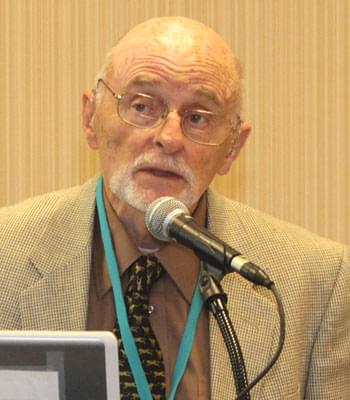Could the rise of advanced AI tools mean the end of some creative and knowledge jobs? Here’s what the experts had to say.


Fur is a distinguishing trait of mammals although baldness is an attractive variety of mammalian oddities. Check out how humans lost their fur despite still having the gene responsible for it.


Can a nuclear diamond battery change things as we know it, including what to do with nuclear waste?
Don´t forget to leave your comments below and to support the channel by liking the video and subscribing. Thanks!
Subscribe To The Tesla Domain ➡ https://bit.ly/2ECNiWk.
WATCH NEXT 👇
✅ Nuclear Diamond Batteries Could Be The Final Answer For Energy Storage.

For most people, the idea of brain augmentation remains in the realms of science fiction. However, for scientists across the globe, it is fast becoming reality—with the possibility of humans with “super-intelligence” edging ever closer.
In laboratory experiments on rats, researchers have already been able to transfer memories from one brain to another. Future projects include the development of telepathic communication and the creation of “cyborgs,” where humans have advanced abilities thanks to technological interventions.
Scientists Mikhail Lebedev, Ioan Opris and Manuel Casanova have now published a comprehensive collection of research into brain augmentation, and their efforts have won a major European science research prize—the Frontiers Spotlight Award. This $100,000 prize is for the winners to set up a conference that highlights emerging research in their field.

Improving intelligence has preoccupied society since French psychologist Alfred Binet devised the first IQ test. Since then, the notion that intelligence can be calibrated has opened new avenues into figuring out how it can also be increased.
Psychological scientists have been on the front lines of modifying intelligence. So much intelligence is genetically determined, it is, to a large extent, hereditary. But there are still some areas in which it can be malleable.
Intelligence is generally divided into two categories: fluid intelligence and crystallized intelligence. Fluid intelligence is the ability to reason in an abstract way and solve problems. Someone who can come up with dozens of new uses for, say, a toothbrush would demonstrate superior fluid intelligence. And this is exactly the kind of intelligence that tends to diminish as we grow older. The acquisition of intellectual skills, or the ability to read and comprehend, is known as crystallized intelligence, and this form tends to improve as we age.

When P M Murugesan decided to discontinue his education to join his father’s farming business, he had many ideas in mind. In particular, he wanted to work with the banana plant, being well aware that though farmers end up burning tonnes of banana waste, there’s a utility to each part of the crop.
In 2008, he started thinking of ways to make products out of banana waste. He found the idea of making ropes interesting.
“The idea struck me when I saw banana threads being used to thread flowers for garlands. I used the machine that turns coconut husk into a rope as the base and modified it to work well for processing banana fibre,” says the innovator.
The early 1900s was an amazing time for Western science, as Albert Einstein was developing his theories of relativity and psychology was born, as Sigmund Freud and psychoanalysis took over the scientific mainstream. Karl Popper observed these developments firsthand and came to draw a distinction between what he referred to as science and pseudoscience, which might best be summarized as science disconfirms, while pseudoscience confirms. While the way we describe these disciplines has changed in the intervening years, Popper’s ideas speak to the heart of how we arrive at knowledge.
–
Wanted: Santa Clause by Kevin Dooley https://www.flickr.com/photos/pagedooley/3124443099, licensed under CC BY 2.0: https://creativecommons.org/licenses/by/2.0/
Rudolph the Red-Nosed Reindeer copyright Rankin/Bass Productions & DreamWorks Classics.
Other images and video via VideoBlocks or Wikimedia Commons, licensed under Creative Commons by 4.0: https://creativecommons.org/licenses/by/4.0/
Produced in collaboration with PBS Digital Studios: http://youtube.com/pbsdigitalstudios.
Crash Course Philosophy is sponsored by Squarespace.
http://www.squarespace.com/crashcourse.
Want to find Crash Course elsewhere on the internet?
Facebook — http://www.facebook.com/YouTubeCrashC… — http://www.twitter.com/TheCrashCourse Tumblr — http://thecrashcourse.tumblr.com Support CrashCourse on Patreon: http://www.patreon.com/crashcourse CC Kids: https://www.youtube.com/crashcoursekids.
Twitter — http://www.twitter.com/TheCrashCourse.
Tumblr — http://thecrashcourse.tumblr.com.
Support CrashCourse on Patreon: http://www.patreon.com/crashcourse.
Pseudo-science theories are a little like puppies. They’re fun, fluffy things to talk about, and most of the time they’re harmless. Sometimes, however, they get big, mean, aggressive, and have to be put down.
Support me at Patreon: https://www.patreon.com/sciencephiletheai.
Facebook: https://www.facebook.com/sciencephile/
Twitter: https://twitter.com/Sciencephile_
Music: Mozart KV 333, Piano Sonata No 13 I in Bb.
Further reading: